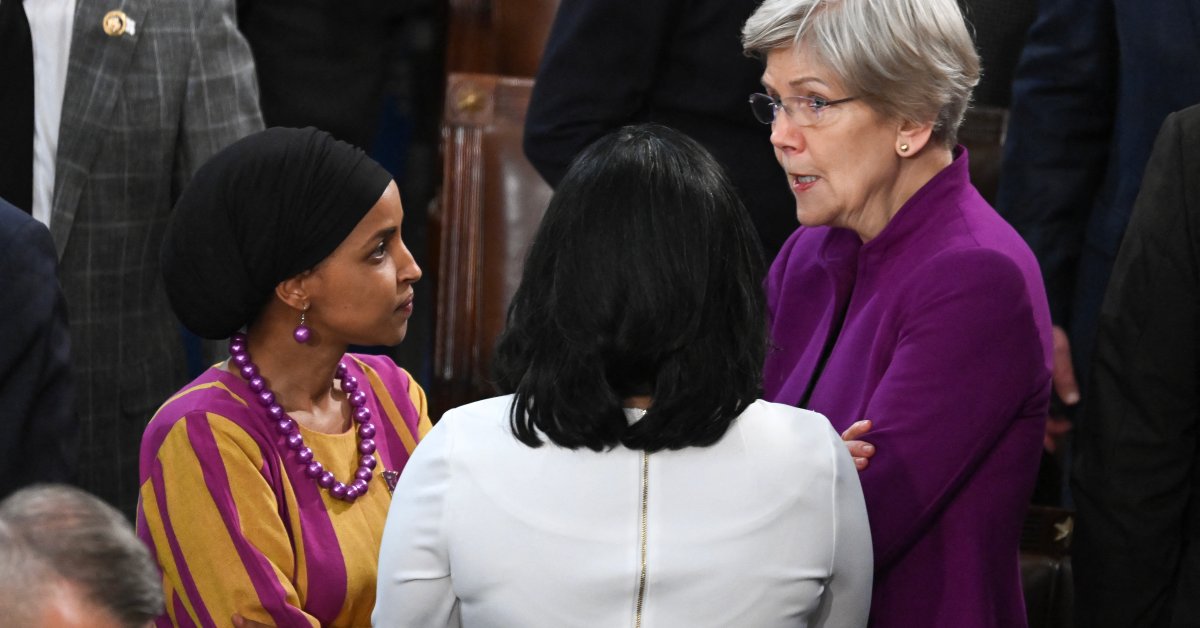So people shouldn’t be upset that Biden hasn’t done enough because he’s not the king.
And then Democrats in the Senate who could investigate these things ask Biden because they’re incapable of it.
So are we to assume that the entire government is incapable of dealing with this?
The prices legitimately went up due to supply chain constraints during the pandemic. The problem is, they never went back down, and then continued to follow the steep inflation trends of a post-pandemic nation. That all just became additional revenue for the food industry.
The last time a President signed an Executive Order to fix grocery prices, it blew up in Nixon’s face when it expired and prices blew well past what should have been a consistent inflation trend.
The only way the government could successfully address it would be through congressional legislation, by either establishing a legal rate of inflation for food products, or finally breaking up the big food monopolies. There’s just no way Republicans would ever go for any of it.
He has done lots. People aren’t interested in positive news. Even if grocery prices drop in half, people will say he did nothing.
Okay but it would be nice to know if anyone our government is capable of doing anything about this.
They’re perfectly capable. About half just don’t want to.
I don’t know how to convince people to vote for ourselves instead of hate. I don’t know how to get people to vote for solutions, even imperfect ones, over someone to blame.
But if you figure it out, these are the kinds of problems we can go about solving.
half is being optimistic here though
Grocery prices dropping by half would be amazing. I would be interested in learning what he has done for grocery prices and why congress feels the need to ask him to do something about it if he has supposedly done so much already.
deleted by creator
deleted by creator
A White House spokesperson noted that the Administration does not play a role in or comment on enforcement actions but pointed to another example of Biden’s DOJ blocking a merger that would have raised prices for lettuce and packaged salads, and also suing to address price-fixing of chicken, pork, and turkey meats
The sheer balls to say there’s nothing you can do because it’s not your job…
And then immediately demand credit for something similar?
I’m confused how you think it’s similar. Do you have some source that claims the Biden administration instructed the DOJ to block that merger?
Cause what they are doing is pointing out how their independent DOJ has a track record of already investigating these occurances. They aren’t demanding credit for directing them to do so.
We went over this when the last guy was in office. You don’t want politicians deciding who the FBI investigates.
Republicans abuse power so we can’t use it correctly
Not to mention you’re not addressing the part where they try and take credit
deleted by creator
Ok…
Now read the headline and remember what we’re actually talking about here…
Removed by mod
So the questions are collusion and abuse of a monopoly. Is that happening? Price gouging is not illegal, but competition usually limits it, if there is effective competition.
We’ve had similar ridiculous inflation as everyone else, but this is not an area dominated by one chain. We have several major chains and Walmart is just one of them: are they all colluding? Is there some vast conspiracy? Within the confines of the new much higher prices they seem to be competing as much as before
Imagine defending capitalists fucking over the very customers they serve.
They’ve always been conspiring. They just rarely get caught. It’s even easier now because they can all use the same “market pricing software”.
When there are enough corporations to fit a boardroom table. Competition doesn’t exist.
It’s well within reason to think that many of Executives all attend the same events, have overlapping social circles, and moved around positions between the corporations.
All it takes is one company to get away with higher prices for the other companies follow suit.
But just the other day he said…
President Biden On 30% Increase In Grocery Prices: People “Have The Money To Spend”
Cool here’s the rest of it
“It really is, and it is real, but the fact is that if you take a look at what people have, they have the money to spend. It angers them and it angers me that you have to spend more. For example, the whole idea of this notion that you have… shrinkflation… It’s like 20% less for the same price, that is corporate greed. It is corporate greed and we’ve got to deal with it.”
Typical Ozma shit. Bad faith bullshit is all they know apparently.
Dude has no idea what life is like for the majority of people he “represents”…
That line is taken completely out of context. The full quote, pasted elsewhere in this thread, is about how people can pay these price hikes, technically, but it’s rage inducing that they keep having to, and we need to address this kind of corporate greed.
is about how people can pay these price hikes, technically,
But they can’t…
Maybe you’re fine, but lots of people aren’t. The more prices go up, the more people can’t.
Desperate people do desperate things.
Do you think you’ll feel the effects of prices or starving masses first that effect your life enough for you to care?
Because things aren’t heading in the rights direction. Republicans break too much and Dems don’t try to fix it all. Damage accumulates if we don’t make repairs faster than damage is done.
Electing Dems who try to fix the damage, gets them more votes and more like minded people in office. Half ass measures are what’s holding us back, and you need to think about whose donations ensure we keep ratcheting backwards.
I am so lost as to your message here, I’m sorry. Best guess response:
I’m well aware of the rising cost of food, and that people increasingly can’t afford it. But desperate people do desperate things, and food insecurity is about as desperate as humans can get. People find the money, usually by reprioritizing other critical needs. This is, of course, fucking insane that they have to do that. But because they are able to do that desperate reprioritizing they can continue to be bled dry by the corporations setting the prices. I’m not disagreeing about the cause or half measures, just that that quote is being used so out of context it’s straying into the territory of intentional deception.
It’s one banana, Michael. What can it cost? $10?
The Party told you to reject the evidence of your eyes and ears. It was their final, most essential command.
deleted by creator
Inflation is a macroeconomic phenomenon. It’s silly to attack grocery stores for an economy-wide rise in the price level. As if Walmart wasn’t greedy during the 2010s when inflation was quiescent, and suddenly became greedy now, just because.
What actually caused inflation was the big spending by both Trump and Biden, not funded by tax increases. The US federal budget deficit is now over 6 percent of GDP, and is projected to keep ramping up. And the Federal Reserve has been slow to raise interest rates to sterilize various federal spending increases, like the Covid spending packages and the Inflation Reduction Act. These are classic ingredients for inflation.
So, plenty of blame to go around, but it’s mostly in Washington, not individual companies here and there.
There’s actually quite a bit of evidence that post-pandemic price fixing across multiple sectors is to blame for the “inflation” we’re seeing - one example is the energy sector and what the FTC recently reported on: https://www.thebignewsletter.com/p/an-oil-price-fixing-conspiracy-caused
So, why didn’t all these companies collude to fix prices before? Were they virtuous before? Did their turn to the dark side just happen to coincide with a large unfunded fiscal expansion?
Because they had unlimited money with low interest rates, which made them do mergers and acquisitions, consolidating the playing field further and further so that when the free money dried up, the market was so concentrated on the supply side, they could ratchet up prices this much. This happened in pretty much all markets, not just the US food market.
So companies in all markets in all countries attained this market concentration at the same time, triggering this? And it just happened to coincide with a big expansion in the money supply, but the expansion in money supply had nothing to do with the inflation?
No, they attained market concentration in enough markets in enough countries to drive the rest, and to varying but overall high degrees. What happened at the same time were the interest rate hikes.
If a money supply hike was enough to cause this, and there were decent natural competitive restraints on price fixing, wages would have went up together with prices.
No, interest rate hikes significantly postdated the inflation. Fed started hiking in March 2022, and by that time annualized CPI inflation rate had reached 8 percent. Average over 2021 was 4.7 percent. In any case, interest rates increases are to combat inflation, they are not a cause of inflation
Moreover, wages did go up. US median personal income went from $35.8k in 2020 to $40.5k in 2022. Maybe it didn’t go up as much as other prices, but there’s nothing that says all prices have to rise by exactly the same amount during an inflationary episode.
What if isn’t inflation but they’re hiding behind that narrative as a reason to keep raising prices. Not saying that’s 100% what happens but we got a whole lot of companies out there claiming there’s nothing they can do about the price hikes while also reporting record profits (after adjusting for inflation). The maths ain’t mathing.
Left to their own devices, companies want to raise prices and always have. You need a way to explain why they didn’t hike prices in the 2010s, when they were presumably just as greedy as they are now.
Put another way, inflation is about the loss of value of money itself, not individual prices going up. That’s a matter of macroeconomics: government spending, money supply, trade, etc.
Because people tend to notice when one price goes up. They notice much less when there are multiple excuses and many prices are going up. It’s a lot easier to refuse to buy one thing than it is to refuse to buy everything.
We don’t have the kind of supply/demand price curve you read about in econ 101 because there are too many barriers to entry to starting any business. Once you’re established, you can either choose to race to the bottom so that both you and your competitors lose money OR you can implicitly agree to set your prices about the same as theirs. So choose, do you like more money or less money?
Yes, it’s partly inflation. And it’s partly the PPP. But largely it’s just greed hidden behind excuses with no real threat of PR fallout.
So your story is that when all other prices happen to go up, lots of greedy companies conspire to up their prices. But why do the initial prices start going up to kick this off? Cosmic coincidence? Or is it conspiracy embedded in conspiracy?
In macroeconomics, the motivations of individual firms don’t matter, or at least we just assume all firm behave as self-interestedly as they can get away with. This was as true in the 2010s, when inflation was low, as today when inflation is high. What matters are things like fiscal policy, monetary policy, inflation expectations, etc. Not how greedy companies are – we can assume they always are greedy.
You’re apparently spamming similar replies without reading what you’re replying to.
Can you use changes in monetary policy to explain why grocery store profits are higher than before? I would think that in the event of inflation stores would stabilize to profits that are roughly the same (percentage wise) as they were prior to the inflation occurring. To the best of my knowledge, this has not happened.
This is the first article I found, and in it they don’t mention any economic policy as a major cause.
When an economy undergoes inflation, not all prices rise by the same amount. That’s one of the reasons high inflation can be so disruptive. For example, wages (the price of labor) often rise some time after other prices, to the detriment of some wage earners.
It’s pretty believable that grocery store chains have acquired enough market power that they’re able to pass on all their cost increases to customers, and more, thereby increasing their profit rate. But the fact that individual companies and sectors are well placed to cope with inflation doesn’t explain the economy-wide and world-wide inflation.
We can also look at the “companies have market power” explanation using the overall labour share, which measures how much income is going to labor vs capital, economy wide. It doesn’t seem to have shifted much during the recent bout of inflation. But again, individual wage earners have seen huge disparities, including some who have been made much worse off by the inflation.
But why are the prices of food rising faster than the costs paid by companies (this is inclusive of all costs)? The naive assumption is that if all costs were originally x and prices were 1.1x, then as costs become 1.3x, prices become 1.1*1.3x. However, their profit margins as a percentage rose. So instead of 1.1 we now have 1.4.
Obviously the numbers used are fake, but this is why people are angry and it’s not something I’ve seen explained using economic principles that don’t involve terms like market consolidation at best or collusion at worst on any article. Rage sells so telling people their groceries cost more because there aren’t enough grocers or the grocers are collaborating is good business for newspapers as long as they can find an expert or group to make the allegations for them.
The idea of prices going up and down by the same amount is based on an equilibrium situation. This isn’t ruled out; it could very well be that the high profits of grocery companies is transient (or “transitory” as they say). But in the short run, prices don’t move in lockstep.
Aside from market power or collusion, there are other reasons prices could shift more quickly for some sectors than others (even as all prices are going upward). For example, does the industry rely on long term contracts or short term contracts? Is inflation hedging widely available for the goods and services in question? Is the activity more or less sensitive to interest rates?
But these are questions about relative prices. Instead of playing a game of whack a mole, better not to set off inflation in the first place.










